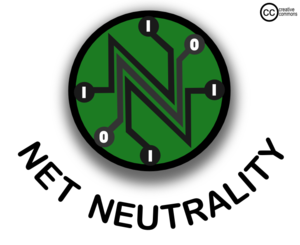 Last September was the close of the open public commentary for the FCC regarding the Open Internet and net neutrality regulations. Millions of people offered commentary in the time allotted on the proposed FCC plans for a potential paid priority fast lane for network transmission. The overwhelming response was to make broadband internet a common carrier service by reclassifying it as Title II. Since then, though, there has been minimal movement receiving the same public attention on what the future holds for the open internet as we inch closer to the FCC’s expected ruling at the end of February. What seemingly minor actions that we have seen take place over the last few months have been very telling as to the direction that the FCC seems to be heading.
Last September was the close of the open public commentary for the FCC regarding the Open Internet and net neutrality regulations. Millions of people offered commentary in the time allotted on the proposed FCC plans for a potential paid priority fast lane for network transmission. The overwhelming response was to make broadband internet a common carrier service by reclassifying it as Title II. Since then, though, there has been minimal movement receiving the same public attention on what the future holds for the open internet as we inch closer to the FCC’s expected ruling at the end of February. What seemingly minor actions that we have seen take place over the last few months have been very telling as to the direction that the FCC seems to be heading.
The “Leak”
It all started with the “leak” of a new proposed plan that abandoned the fast lane concept in favor of creating an even playing field from the content providers to the ISPs, while still failing to ensure that same protection from the ISPs to the end of the line (your home or business). This story, while not receiving the same attention and outrage that we experienced with the fast lane proposal, was just as misguided. I covered some initial thoughts on the matter here, but the part of this plan that stood out the most was the fact that the FCC was still attempting some sort of compromise to not regulate the ISP’s broadband networks in the way that was overwhelmingly called for by the public, whether the public understood exactly what they were asking for or not.
Our Money Comes With a Catch
The next piece of the puzzle to fall into place was the FCC increasing the required bandwidth capabilities of the network. Back in December the FCC raised the required download/upload capacity of networks to 10Mb/1Mb (previously 4Mb/1Mb). There was a caveat in that these requirements would only be applied to those that utilized specific government subsidies from the Connect America fund. This announcement was completely under the radar for most people, and rightfully so as it the larger ISPs like AT&T, Verizon, and Comcast can manage to expand and build on their networks without adding government funding; thus allowing them to avoid having to live up to these requirements. However, for the smaller companies that were offering broadband connections to homes, this could be considered both a blessing and a curse because in rural markets it gives them to the ability to be more competitive by having a more robust network, but that also requires a potentially higher cost of investment up front in order to provide this service.
Wheeler (Misguidedly) Tips His Hand
 A few weeks after this news was the largest electronics trade show in the world: CES. The FCC’s Chairman Wheeler was not only seen at this event but also spoke openly and publicly about the need for strict regulations over broadband internet, including addressing the concept of Title II. While this news drew lots of cheers from the Battle For the Net crowd, you’ll have to excuse me for being cynical and seeing this as more political posturing than anything else. In other words, Chairman Wheeler was saying all the right things, but what he says and what the FCC’s vote will decide in just a few short weeks, could have little to nothing to do with each other.
A few weeks after this news was the largest electronics trade show in the world: CES. The FCC’s Chairman Wheeler was not only seen at this event but also spoke openly and publicly about the need for strict regulations over broadband internet, including addressing the concept of Title II. While this news drew lots of cheers from the Battle For the Net crowd, you’ll have to excuse me for being cynical and seeing this as more political posturing than anything else. In other words, Chairman Wheeler was saying all the right things, but what he says and what the FCC’s vote will decide in just a few short weeks, could have little to nothing to do with each other.
Chairman Wheeler’s reasoning for looking at Title II as a viable option was to state that when the wireless networks for mobile were reclassified, they continued to expand and improve. This is a completely misguided comparison as the larger ISPs, while national companies, have actively avoided getting into direct competition with each other by electing to target different markets. This was never more apparent than when Comcast was exploring the possibility of purchasing Time Warner. Both companies control network infrastructure in the New York/New England market, but they are not overlapping so there is no direct competition between them. It was this very argument the companies made when stating that their proposed merger would not violate monopoly laws because the merger would not alter the number of options available to the consumers in those given markets.
Eliminating A Roadblock
The last strike by the FCC came just recently when they voted straight down party lines (3 Democrats for and 2 Republicans against) that ISPs will now be required to have and support a national network infrastructure that is capable of providing 25Mb downloads in the home with a 4 Mb upload. Of course the ISPs are quite up in arms over this new requirement and I am certain are looking for the legal loopholes to again take the FCC to court for the potential overreaching use of Section 706, which was the regulatory section they used to push this agenda.
The Bigger Picture
 So, how do all of these pieces allow us to draw a conclusion as to the potential outcome of the FCC’s decision on how to regulate the open internet? Simply put, one of the biggest arguments against moving towards Title II has been the fact that it would not incentivize the ISPs who build the network infrastructure to continue to invest in the expansion and improvement of the network. I am one of these people that made the statement that if you make it difficult for a for-profit company to make money, what reason would they have to want to improve their services?
So, how do all of these pieces allow us to draw a conclusion as to the potential outcome of the FCC’s decision on how to regulate the open internet? Simply put, one of the biggest arguments against moving towards Title II has been the fact that it would not incentivize the ISPs who build the network infrastructure to continue to invest in the expansion and improvement of the network. I am one of these people that made the statement that if you make it difficult for a for-profit company to make money, what reason would they have to want to improve their services?
The FCC has countered the potential issue by forcing the hand of the ISPs to improve the national infrastructure so that it is supported equally in all markets at a stated minimum before offering a ruling. If that proposal holds, then the ISPs will be forced to upgrade the networks first and then the FCC could hold them accountable for providing these minimum network requirements and then vote in favor of Title II reclassification which would protect the content providers and consumers.
This is why I believe that the FCC appears to be laying the groundwork for reclassification. They did look at all the possibilities and commentary that came in during the open public comment period and took that information into account when laying out what would be required to make Title II an effective solution for the consumers – the very people that the FCC was created to protect.
UPDATED (2/4/15) – Chairman Wheeler announces that he will be pursuing Title II in the vote. Read the FCC release here.



Pingback: Net Neutrality Posts | Sound ReasonSound Reason